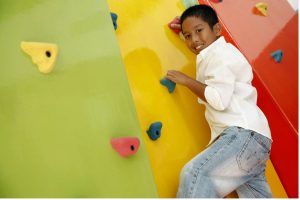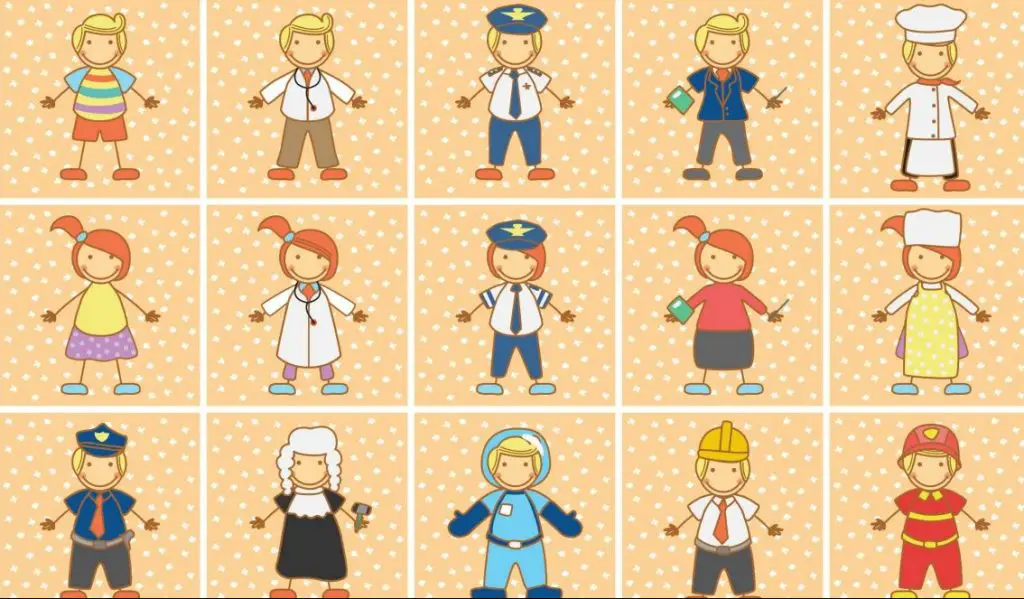Every child dreams. If you ask children what they want to become one day, and they’ll give you a relatively clear answer. I recently read an article where kids voted for their top jobs as adults. These ranged from dancers, in first place, all the way to becoming doctors in 15th spot. That’s a lot of clarity about what they want to do one day.
While there’s a lot of research that has gone into asking kids what they want to be, there’s very little about why they want to take on these professions.
Asking children what they want to be is a bold question. I’ve heard many answers over the years, but it’s more important what we do with the information that we receive from children than actually thinking they’d like to one-day work in that profession.
- Kids of Today Are Global Citizens
- They are Not Focused on Careers
- Kids Are focused on Service
- Kids Are Aware of Behaviours
- Kids Understand Results
- The “What do you want to be?” Question is Outdated
- Being Curious About What They “Think” Know about Professions
- Values Drive a Child’s Behaviour
- Have Fun With the Answers
- Don’t Pigeon-Hole them with your Approval
Kids of Today Are Global Citizens
With the internet and social media bringing ideas to them, children have vast influences outside of their immediate families. So, don’t take it personally when your child is fascinated by a profession far removed from what you do.

I’m not surprised actually that YouTube has such a big influence on their career choice and their thinking. This is why I have YouTube Kids installed so I have some level of influence on my daughter’s development. Garbage in, garbage out. If she watches something that adults might reject consciously, she might pick it up as something valuable since her capability to judgment is just under development. Otherwise, there could be some vast detrimental effects on her thinking and later her career choices.
They are Not Focused on Careers
In my experience with young children, very few of them are career-oriented. With age, parents and society begin to impose ideas about wages and earning, getting our kids to factor these into the equations.

When was the last time you heard a four-year-old talking about how much she really wants the security of a steady paycheck? That’s right, never! Children see with the unbridled eyes of innocence. When they observe a career they don’t see a job. They see one human serving another.
Kids Are focused on Service
Why do kids want to be doctors and fire-fighters? Why does your child want to be an engineer? Why does your little girl want to be a dancer?

They want to serve the world.
They want to give an audience something that they’re after.
Maybe it’s fictional, a fantasy that they’ve made up in their heads. Most of the time though, it’s based on a feeling. Kids often feel their way through life, following the things that make them feel happy and fulfilled.
Kids understand serving people far better than adults do. They do that on an intuitive level without overthinking. Serving others is what many of them are focused on when they dream about professions.
Kids Are Aware of Behaviours
Most children don’t think deeply about the moment – they live deeply within it. This means that they’re willing to do the things that they love. And they’ll spend hours doing these things. You know what I’m talking about, right? They’ll spend hours in the backyard, talking to their imaginary friends, role-playing what they’ve watched or the stories that they’re improvising.

When children start talking about careers that fascinate them, it’s because they have an idea about what these people do in their work that they find fascinating.
Kids Understand Results
There is value in all activities for children. There’s always a return on investment for them. Most of this is all unconscious though. They’re just not aware of it all.

Kids see that the doctor helps people feel better. They see the fire-fighter saves people from fires, making them feel good. The dancer entertains and makes people feel good.
There’s an outcome for every profession. Why not ask your children more about this outcome that they’re seeing? Imagine they said they wanted to be a police officer. You could ask, “What does a police officer leave the people he/she helps with?” or, “After your work is done, how do the people you’ve helped feel?” or even, “What do people get from you when you’re a doctor, etc?
The answers may surprise you and your children because we don’t often explore questioning at this level.
The “What do you want to be?” Question is Outdated
Most parents are missing the point here. It’s easy to ask the question, “What do you want to be when you’re big?” However, let’s take a step back and look at the world as it is today. What is happening to conventional careers? Remember the postman? The milkman? The seamstress? You might, but your kids won’t.

Times are changing faster than we can fathom. We need to teach our children to be agile. By this I mean, not allowing them to get hung up on titles, ideas or even the contents of a job. Mental, physical and emotional agility are going to be a hot commodity in the future. People who don’t get “stuck” in one way of being are going to sought after.
Think about it; becoming an app developer might be a buzz job today, but who knows what the next one will be?
If you’ve already asked your children this question, don’t be disheartened. Use it for what it is – a starting point. Start digging deeper into what it is they want to be. Be curious about their answers.
Being Curious About What They “Think” Know about Professions
Children know what they see and just like adults, they make up ideas about what they’re seeing. They form beliefs in this way and then they let their beliefs inform what they can and can’t do, what they want and don’t want to do.

Being an adult, you might have a very deep and broad understanding of what having a job means. When your child says, “I want to be an engineer” you might know that an engineer doesn’t just design things. They manage projects, work with other people, manage deadlines and work through a lot of administrative red tape and numbers.
If children are really curious or set on becoming something very specific, why not give them a chance to move their ideas from the unknown to the known? Allow them to see what an engineer actually does. Recently, at the place where I work, we had a family day. Parents could bring their kids to show them what they do, to show the nitty-gritty details of what it means to be an engineer and also to inspire them.
If you know someone in the industry, ask if they can show your child around and let them see an hour in the life of an engineer. Or YouTube works well for this, e.g. this video on what it means to be a mechanical engineer.
Values Drive a Child’s Behaviour
We’re always looking for something deeper in what children are telling us. Imagine you’ve taken a day off to spend with your child. Halfway through the day, he says, “I’m bored.” Maybe you don’t take it personally. Maybe you do. The truth is that “I’m bored” doesn’t necessarily mean, “I don’t like spending time with you.” It could mean multiple things:
- “I’m not enjoying being here, doing this.”
- “I need a change right now.”
- “Emotionally, I’m not in the right mood to do this.”
- “I’m physically tired.”

That’s just a few. Kids, like adults, don’t communicate clearly. It’s our job as parents, to bridge that gap.
When it comes to what children want to be when they’re older, it will often be values-driven. Parents will instil a set of values into their children, but children already come with their own preconceived ideas of what is of value to them.
The truth is that most people aren’t asking their children this question, “Okay, so you want to be x. That’s great! Why though? Why do you want to be x?”
Have Fun With the Answers
If at any point you’ve started to feel heavy about any of these points – don’t stress. Your children will have tons of time to think about what they want to be. It could change. In fact, it’s healthy if it changes. When I decided at the age of 10 that I want to be a physicist with a PhD I didn’t get it straight away, and via a linear path. I first became an engineer, then a physicist.

I believe that my thinking as an engineer made me a physicist who’s on the look-out for something useful, tangible, not only just pure theory. Today thanks to exponential, so nonlinear, technologies, and the fast-changing world, the professional life of an adult is unpredictable, too. Why would we want to expect that a child’s dream might not change or the career path our kid takes? It’s better instead to have fun and be open to what answers our children might come up with when it comes to their aspirations.
Don’t Pigeon-Hole them with your Approval
Children seek love and approval. That time that you got really excited when your daughter said she wanted to be a lawyer could have been a one-off whim. She could hold onto that idea for years because she thinks that you approve.

Children are receptive to our emotions, body language and facial expressions. Remind them that it’s okay for them to be anything that they want to be. In fact, a better question altogether to ask your children would be this one right here:
“What would you like to be when you grow up, today and why?”
With this kind of question, I think we will open our children to exploring far beyond what they already know.
